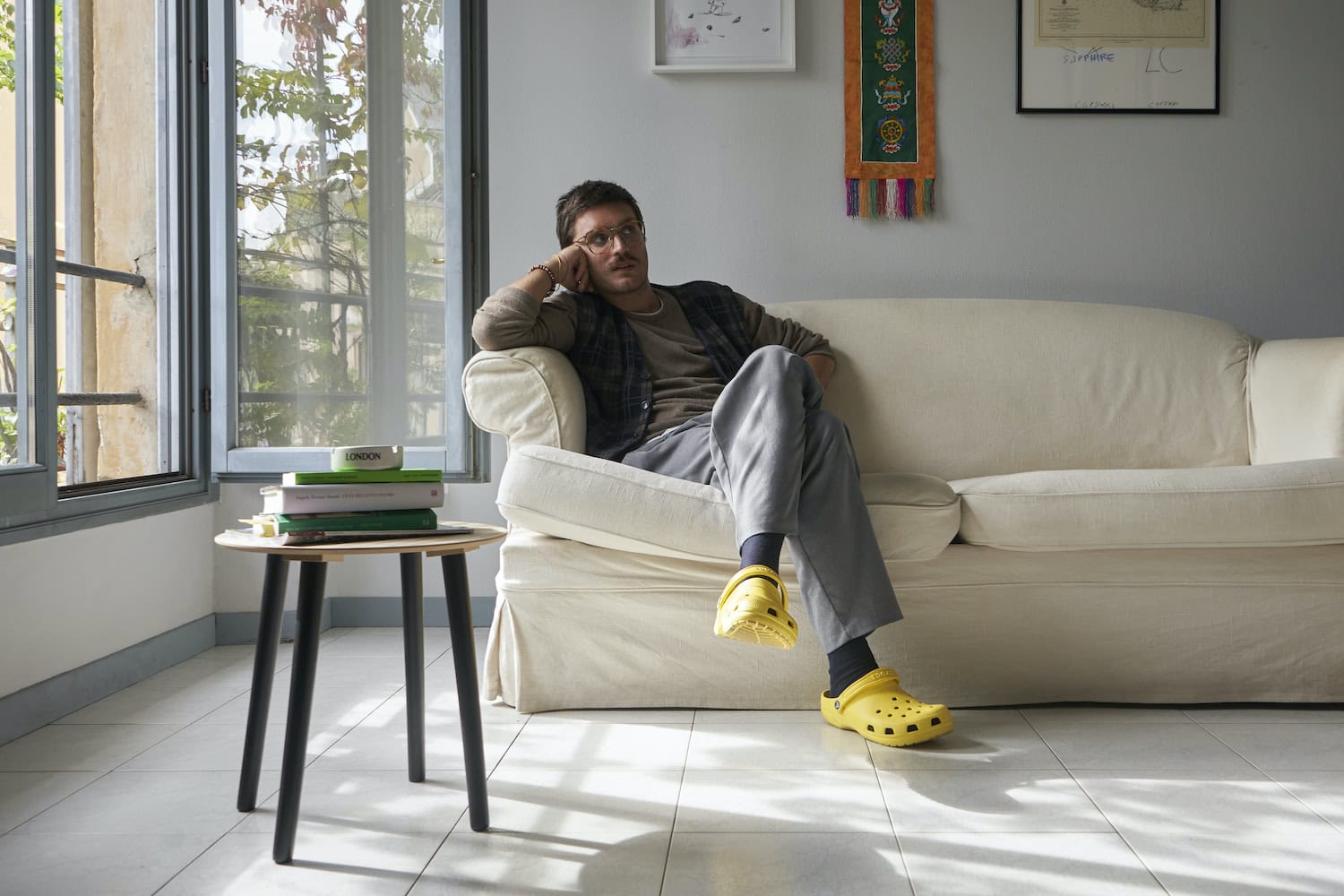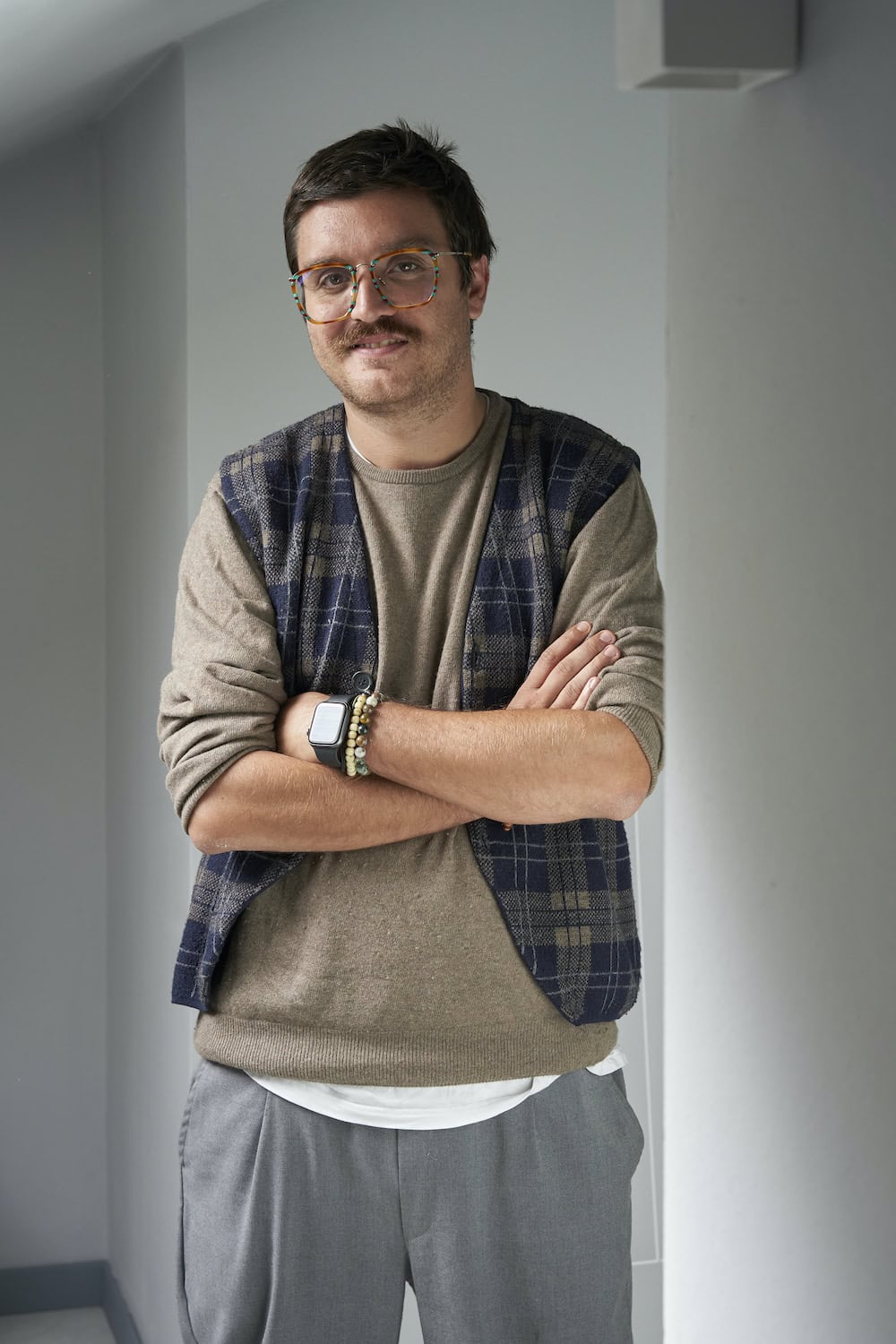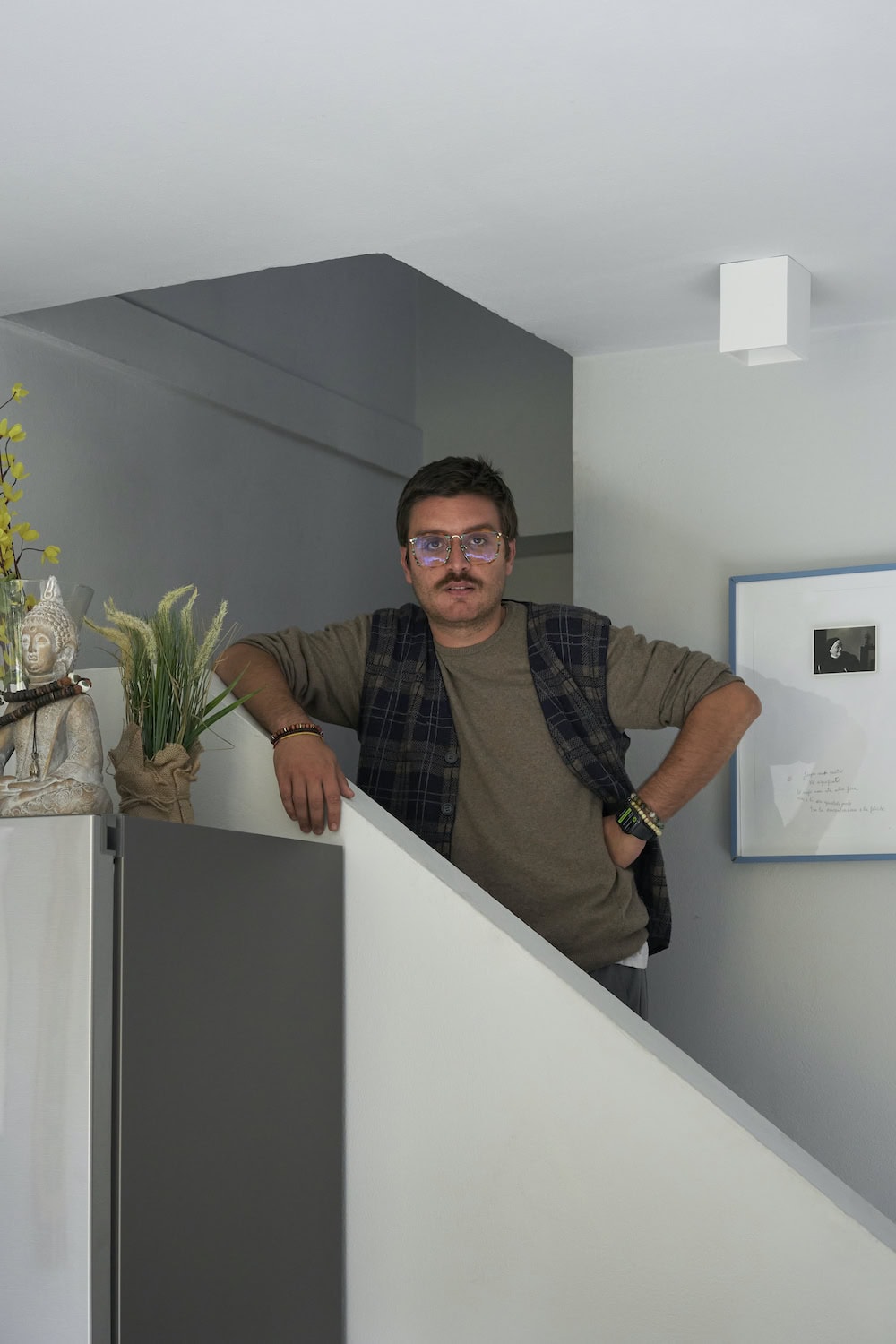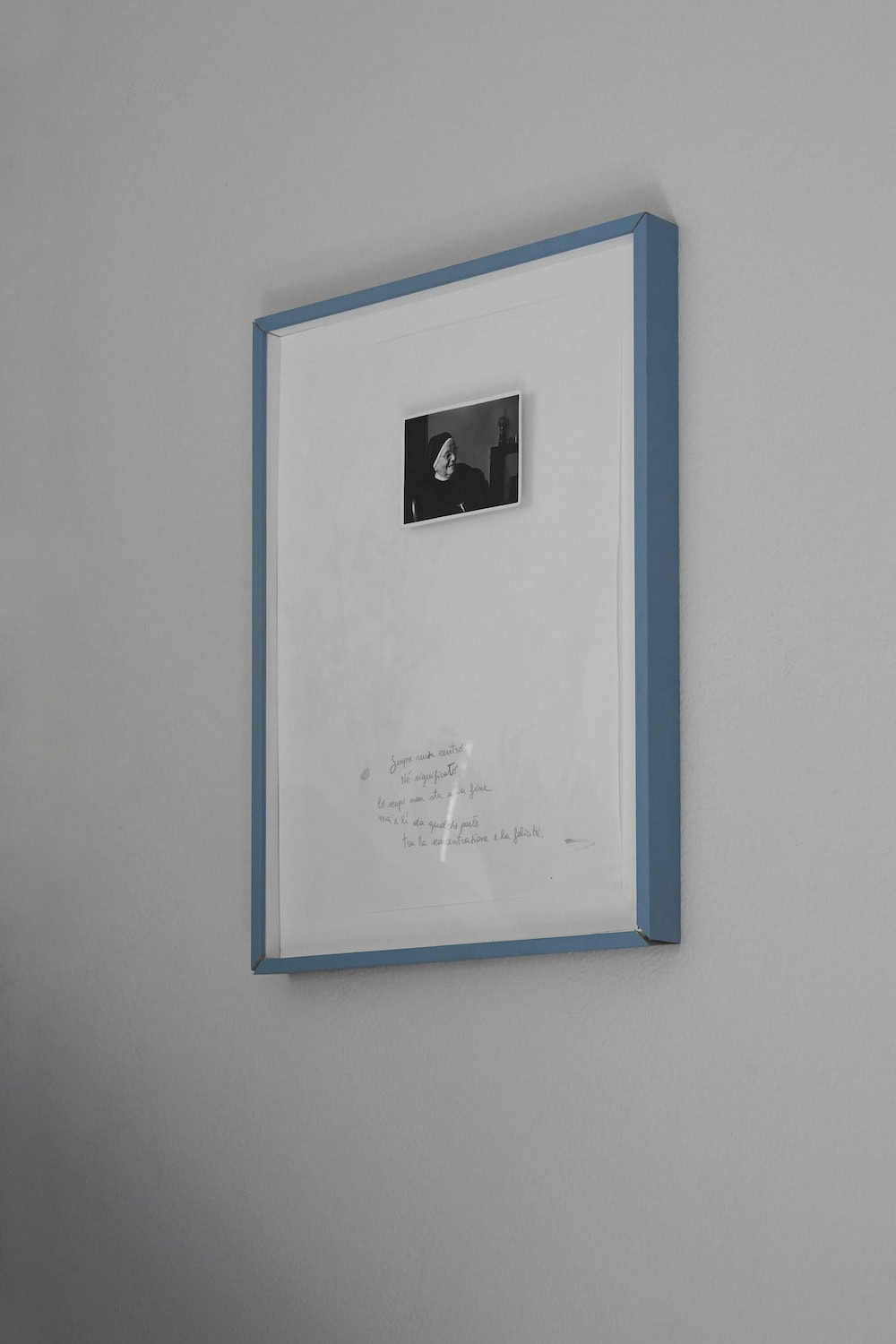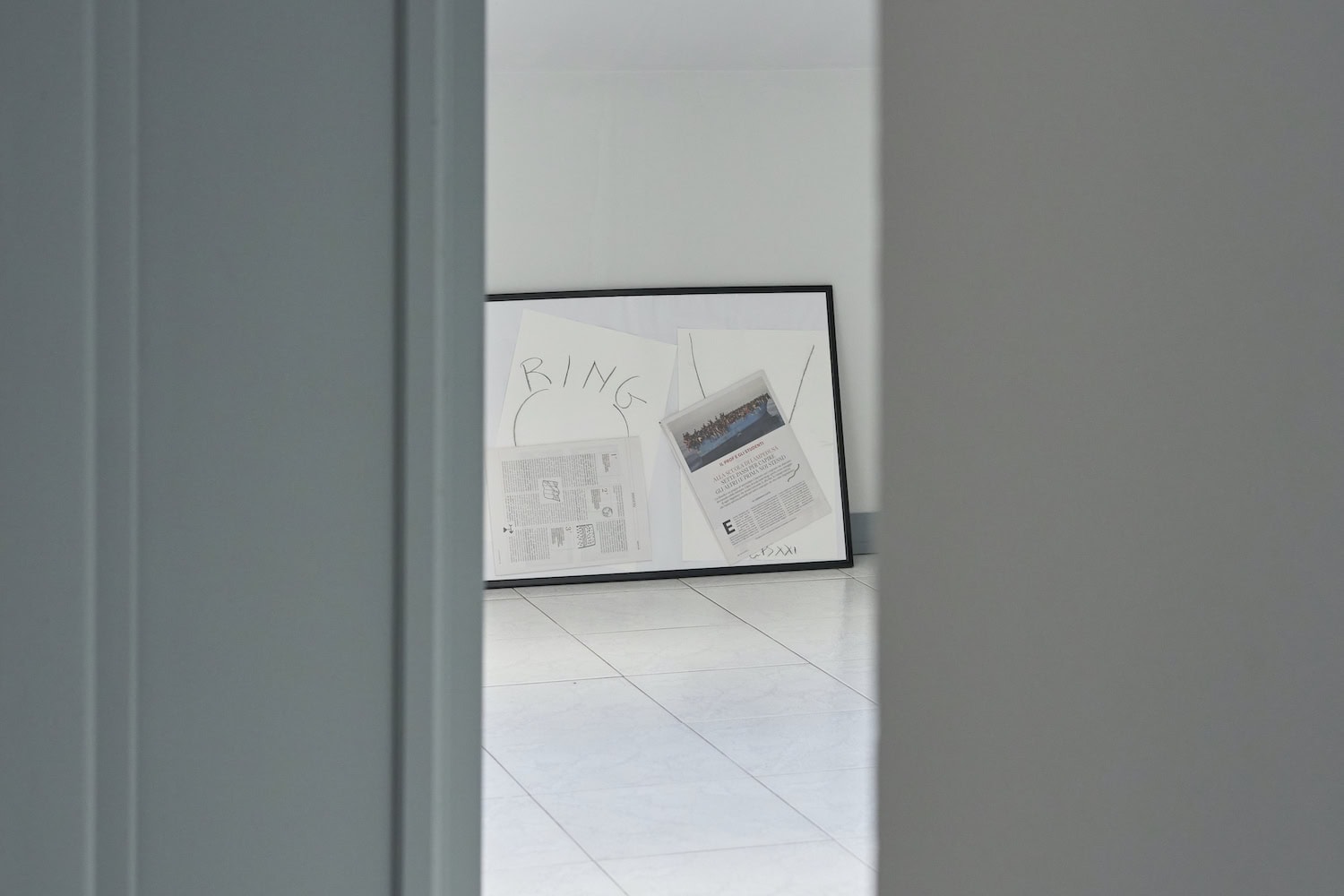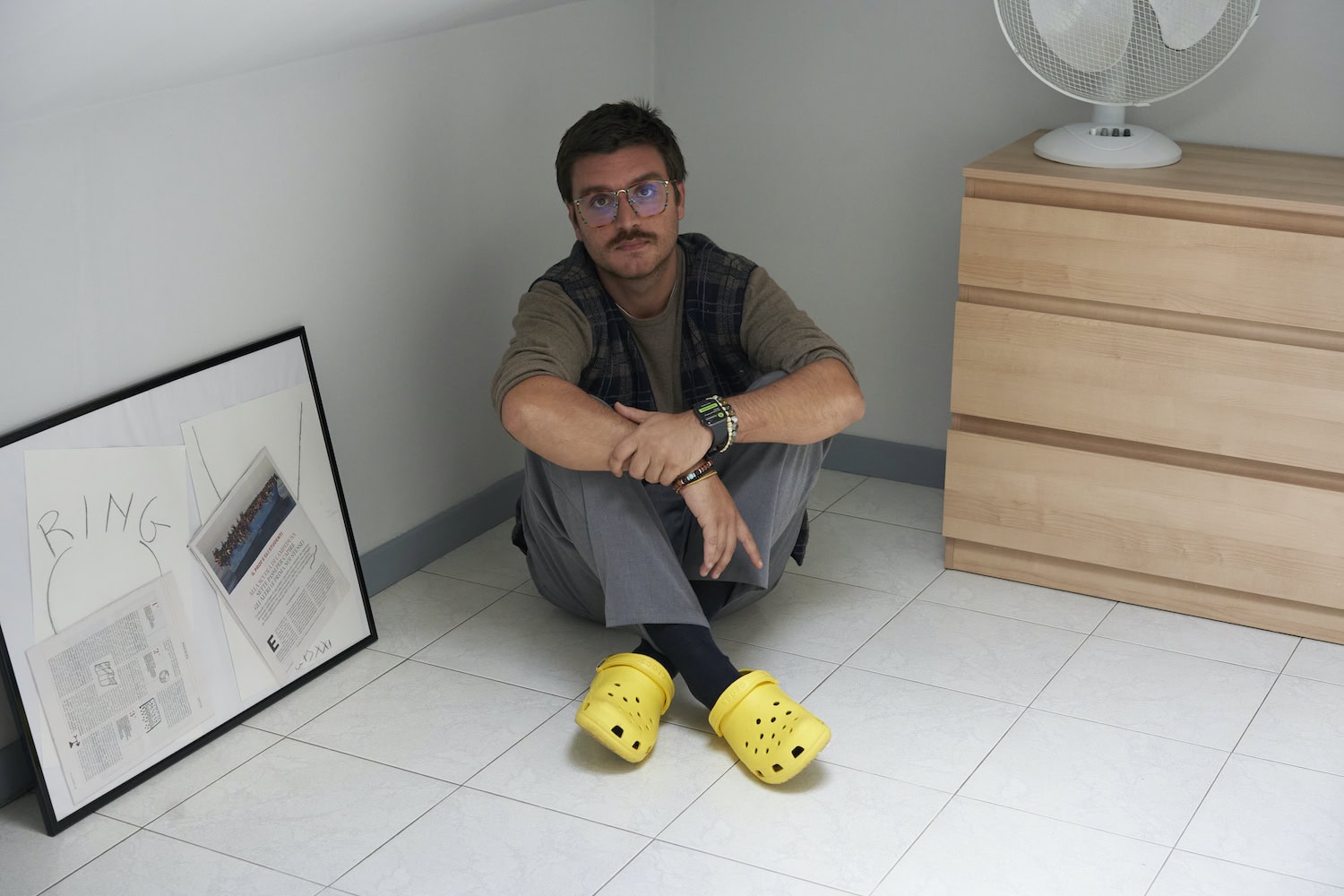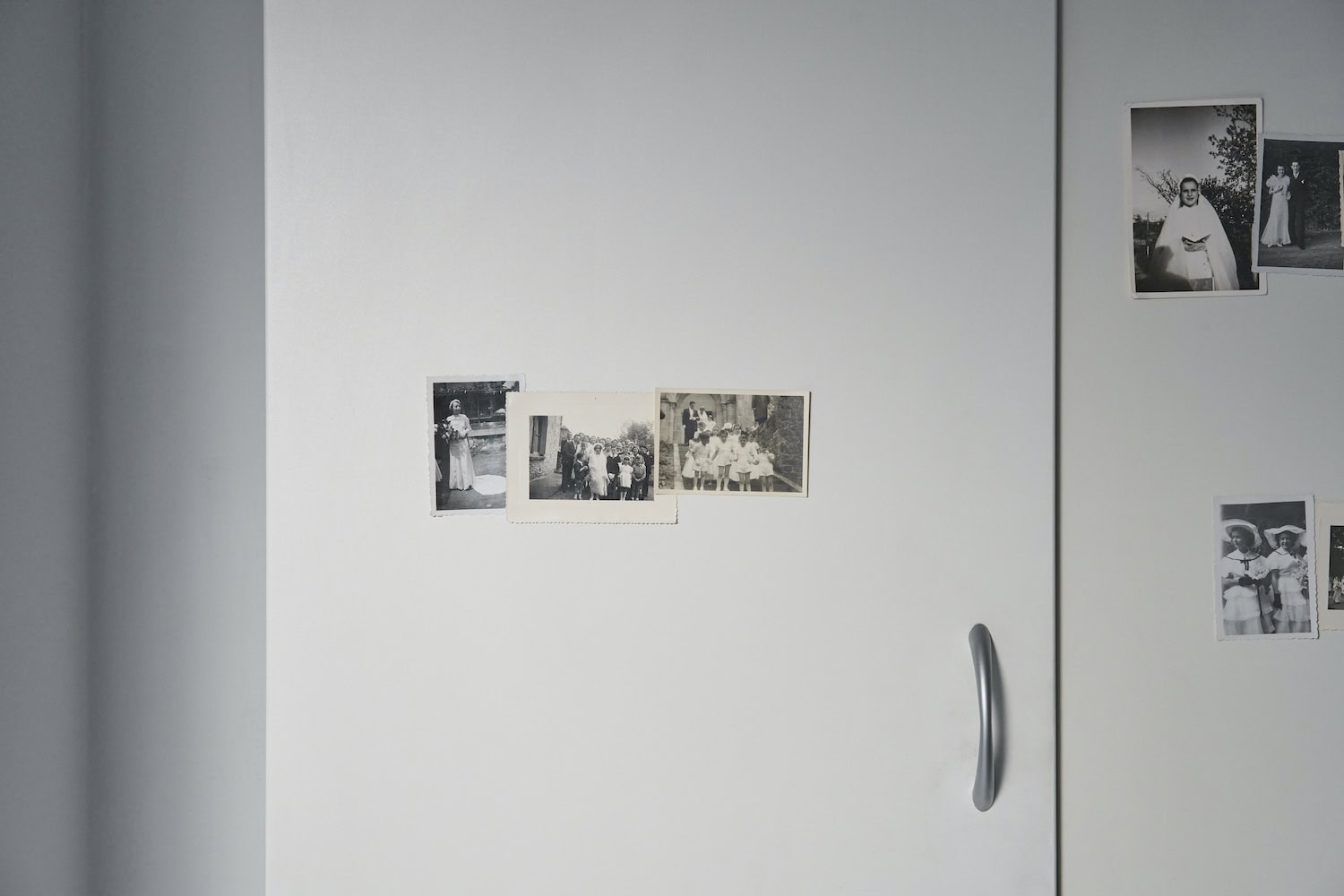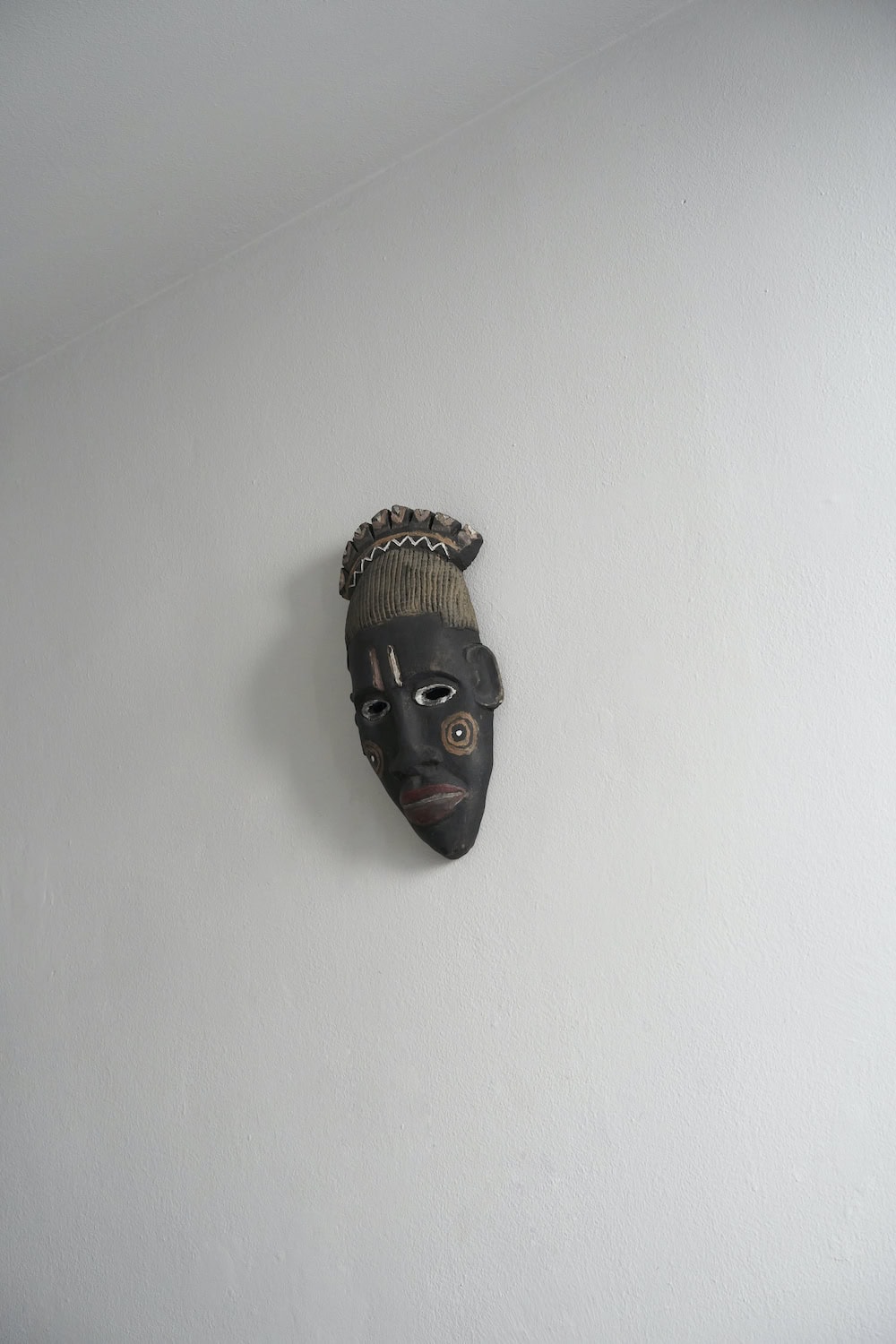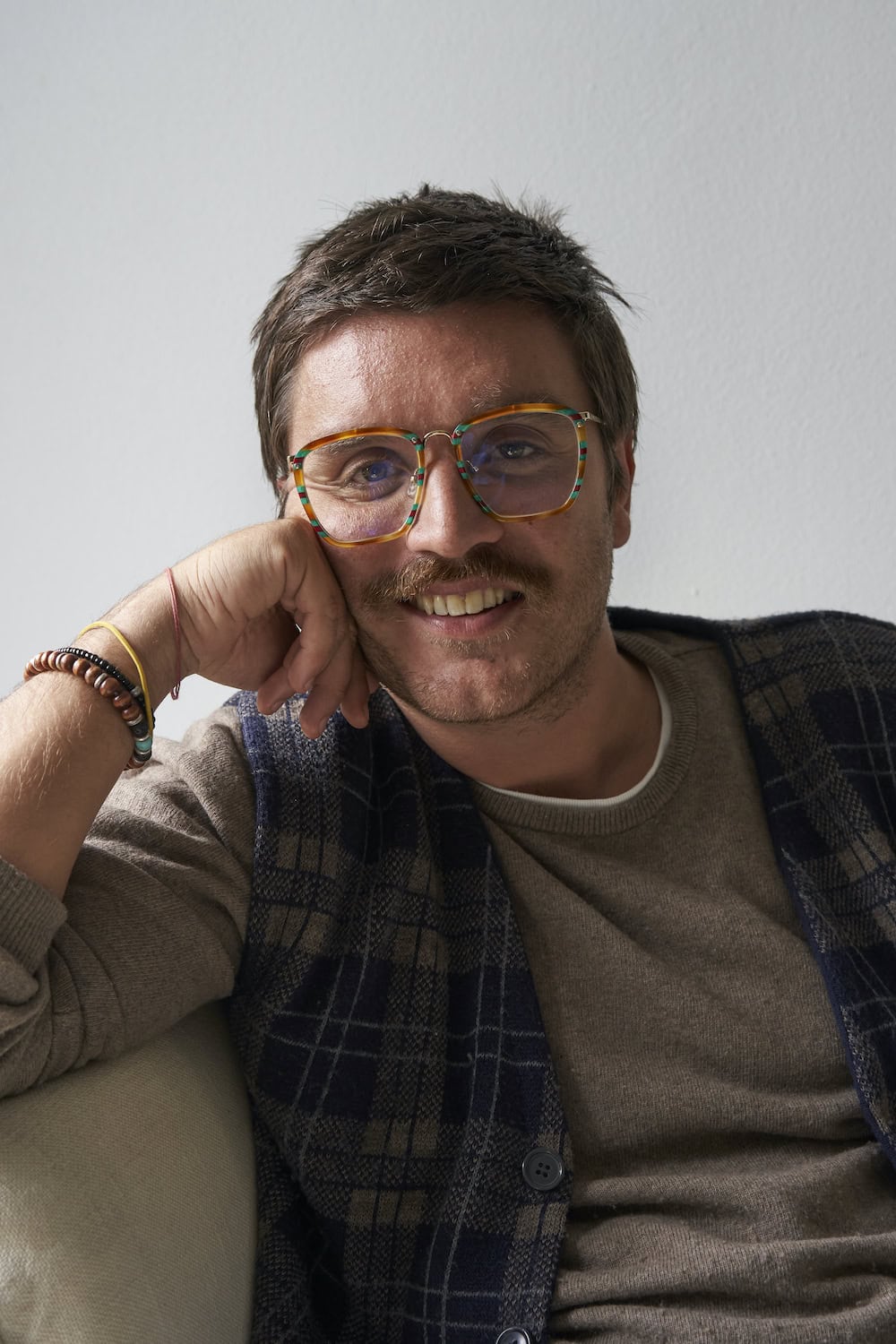The third principle of dynamics states that for every action there is an equal and opposite reaction. Taking the metaphor literally, one would therefore think that our actions allow us to have full control over the world and our lives. Instead, it is precisely by abandoning this illusion of control, typical of our time, that we reconcile ourselves with the real nature of things.
When I first met Leonardo we were both in that moment in life when linear paths seem to have failed. He, however, was serene. The fact that things had not gone as he had planned seemed in a way to be part of the plan. “What else did you expect?” he appeared to say.
After that meeting, it seemed to me that anything could still happen. And exactly not knowing what, among all things, would happen, made that waiting so interesting. The plan, on the other hand—the one that failed—had only one option. And who knows we would not have been bored, in the long run, by “the best of all possible worlds”.
I opened Leonardo’s book and found in it all the words that I feared would escape me. For simplicity’s sake, there are six essential ones (waiting, simplicity—indeed, ecology, isolation, anticipation, offlife), but they only make sense because of all the others. Velocità di fuga. Sei parole per il contemporaneo (“Escape velocity. Six words for the contemporary”) starts with a scientific assumption to explain everything else. “In astronomy, escape velocity is the minimum speed that an object must acquire to escape the gravitational pull of a planet. But it is also the unit of measurement to decipher the contemporary with which the generations of the present live their lives. It describes the Anthropocene, millennials, environmental drama, digital criticism and moral problems”.
We meet at Paolo Sarpi’s second-best Chinese restaurant. The first, he says, has closed. I begin with the smart ambiguity of the title.
RSS: “Escape velocity”. I love the metaphor, but it seems to contain a slight contradiction. We talk about minimum speed to get out of a system, when the solution is, on the contrary, to slow down—if not even to stop. What do you mean, really, by “speed”?
LC: The escape velocity metaphor is an astronomical one, but we do not know the exact speed at which a body must run to escape the atmosphere before gravity pulls it back down. Often, bodies attempting escape velocity are pulled back towards the Earth. In escape velocity, in fact, it is not the speed that is important, so much as the escape, and the fact that the escape leads nowhere except to the escape itself. The metaphor is thus used to explain that we are constantly, if not fleeing, in escape velocity, even if we don’t actually know what speed we have to go at in order not to be thrown back inwards.
RSS: So the escape velocity could also be seen as a slowness?
LC: In physics, velocity simply means the pace at which you go, it does not necessarily mean “going fast”. So there will be a speed x+n such that we will be knocked back down. And that is more or less what happens to everyone with the dramas of life. On a larger scale, it works with the global crisis, economy, ecology, epidemics, war… In the private sphere, it happens in love, family, personal issues, etc. These speeds tell us that perhaps it is not necessary to run, as to learn the pace at which to go.
RSS: You’ve basically already answered my next question.
LC: Ask me anyway.
RSS: Why run away? Escape from what but, above all, to what?
LC: Escape is from oneself, not from something. Let me explain: the problem is such when you see it that way. Hence the keywords are nothing but an attempt to change the way we describe contemporaneity. We cannot act on facts, but on their representation. We only escape from ourselves. The body is not fleeing for a reason, it is fleeing because it feels inadequate for something.
RSS: A kind of tension?
LC: A tension, yes. It is difficult to understand, but the position of men is the escape itself, not its result. And that is the reason why all of us, at the moment we arrive at the result, feel the need to go somewhere else. So we end up longing for what we never started, for what could have been… Then we get there and regret not having done that thing instead of that other. It is a metaphor for human life: only we think there is a goal waiting for us at the end, while the goal is nothing but to escape again.
RSS: There is a song by Giovanni Truppi about this concept…
LC: What is it called?
RSS: La felicità (“Happiness”). It’s about all the things that happen while we’re looking for happiness and how absurd it is to look for something without knowing what it looks like—what shape it has.
Guardavo la mia vita cercando di capire
Se guardandola da fuori mi sarebbe sembrata bella
E mi sembrava di sì ma intanto cercavo sempre la felicità
Ogni volta che mi mancava qualcosa pensavo, “Sarà questa la felicità”
Poi ce l’avevo e capivo che non era quella
E giù ancora a cercare la felicità
Ma come fai a trovare qualcosa che non sai che cos’è?
La forma, il colore, il verso, l’odore
La lingua che parla o almeno una mappa
Un’orizzonte verso il quale puntare
E un mezzo di locomozione per poterci arrivare
I was looking at my life trying to understand
If looking at it from the outside would seem beautiful
And it seemed so but meanwhile, I was always looking for happiness
Whenever I lacked something I thought, “Is this what happiness is?”
Then I had it and realised that this wasn’t it
And down again looking for happiness
But how do you find something you don’t know what it is?
The shape, the colour, the sound, the smell
The language it speaks or at least a map
A horizon to point towards
And a means of locomotion to get there
LC: Happiness is the will to escape, not the will to get somewhere else—at least for me.
RSS: What happens when we abandon the idea of linear and constant progress, both socially and individually? How does accepting that we don’t have control over the totality of our lives give it back to us?
LC: Look, the idea that the future is better than the present is fairly recent. If you remember the things we studied at school, the Golden Age came before the Bronze Age. The future was always better before, until the day before yesterday. It’s an invention of the last three hundred years, the fact that tomorrow will be better than today. If you think about human life, everyone knows that youth is better than old age. It is a capitalist fallacy that tomorrow will be better than yesterday. Also because, usually, the more you add the more you subtract, because you increase the load. It’s like pouring water into a glass: up to a certain point everything is fine, but if you keep pouring, the glass overflows, and you have neither drunk more nor added anything to the glass. Progress works like a glass with water: if you manage to stabilise the level of water, you make it—in the sense that you have enough water for the whole dinner. If, on the other hand, you keep adding water to the glass, it’s a mess. Progress, on a macro level, works like this. We add and add and add until we reach the top. Health, sexual precautions, the fact that we can sit here and chill around, today, you and me. But if we add more, we will no longer have gas, electricity, Internet: we will no longer have a lot of commodities. So the general theory that forms the backdrop to the book is a theory of stability, in which we freeze the situation in a “here and now” of a higher order. We will still try to come to a Chinese restaurant and drink beer, but maybe in six months there will no longer be any electricity bills payable and we will have to meet at someone’s house, or in the dark. The microscale and the macroscale work in the same way, because, in the human being, the macroscale is the projection of one’s shit onto something bigger, while the planet doesn’t give a damn about you and me. What we have with things is therefore always an emotional problem. But it all comes back to the metaphor of the glass: you have to get to a point where you can handle your drink. If you go beyond that, it’s over.
RSS: True. Today, unlike in the past, we are used to thinking of the future as the land of possibilities, where all our hopes live. We find it easier to project ourselves beyond, rather than act on the present—to orientate the “here and now”. The future is inexplicably and intrinsically positive, while the present is by definition disappointing. How does the “elimination of the future” (individual and planetary) become a liberating perspective? Is the perception of an apocalypse necessary to invert the paradigm? (Is it sufficient?)
LC: As I previously mentioned, in the history of mankind, there has never been a future. Even that is a recent invention. To simplify, the future is death. A species that chases death is pretty demented in itself. I mean, you should be happy that you are here with me today and you are living.
RSS: But, as you said, we actually keep thinking about the future—projecting everything there.
LC: But that’s called capitalism. It wasn’t like that before, it was never like that.
RSS: But it is now.
LC: Because capitalism is a kind of high-level Christianity, which tells you: “Today you are suffering, but if you put your savings aside tomorrow you will be better off. Today you don’t have a boyfriend, but if you behave well maybe then you will have children running around in the meadow”. Then, when you have the kids running around in the meadow, you do crack because you’re fucking sick of it. You know, I’m lucky enough to have been looping the loop three or four times already, so it’s not like I’m expecting great things. Time is cyclical, as Nietzsche said, not linear. So in the end things are always those. Eliminating the future simply means realising that the only thing that exists, by definition, is the present. It’s a trite phrase, but that’s how it is: the past is gone, the future isn’t there yet, what do you have left but this table, this beer…? You don’t have any kind of certainty that you will wake up tomorrow morning: it’s a gamble, isn’t it?
RSS: And why does it become liberating to see things from this perspective?
LC: From the future, you mean?
RSS: No, to think that you might not wake up tomorrow. Why do we need this threat to appreciate the present?
LC: Because it’s the only thing that unleashes power for its own sake. Because if you don’t have a future you don’t even have the consequences of your actions. So if you feel like doing something, you do it, whatever form it takes. The reason we restrain ourselves is, judgement, and judgement is the future. Think of a butterfly. A butterfly lasts 24 hours…
RSS: Like an Instagram story.
LC: Exactly. What the fuck does it do? Shouldn’t it go from flower to flower just because there’s no tomorrow? No, it goes on the flower anyway. That’s very clear to me. I don’t have control over what’s going to happen tomorrow, I don’t give a damn. I realise that for many people it’s not like that: that’s why I wrote a book about it.
RSS: In fact, some people live by that very thing. I’m thinking of pension funds…
LC: I understand, but they are idiots. As far as I’m concerned they are making an imbecilic bet. Especially at a time in history when there is World War III.
RSS: Covid should have taught us this, but it finally didn’t.
LC: The only thing that stops me from doing something now is that I don’t feel like doing it. The end. There’s no idea that tomorrow I might regret it.
RSS: You say that “tomorrow doesn’t count”, but the first word you focus on is “expectation”. You call it, at one point, a “justified hope”. How do you reconcile the idea of waiting with the metaphorical elimination of the future?
LC: Because the expectation is the idea that it is the world that gives something back to you and not you imposing it on it. Which is something we are unaccustomed too. There’s the weather forecast that tells you when it’s going to rain, Just Eat that tells you when you’re going to eat, Tinder that tells you when you’re going to fuck, Google Maps that tells you exactly the route you have to take so you don’t get lost, etc. Waiting means doing something in the world and knowing that the world, sooner or later, will give you something back, but you don’t control how, when or why. No hurry. Because aesthetic wonder is unannounced. Little children wonder because they know nothing. What have you been marvelling about for the last six months? Probably nothing. You know everything you’re going to see. Tonight you knew you would see me, and you have seen me before. For pity’s sake, I could have turned up with blue hair, but all in all, that’s me. You eat ravioli, but you have already eaten them a thousand times in your life. Aesthetic astonishment is the astonishment of the world shoving something in your face that you did not expect. When have you been amazed for the last six months? When you have been afraid. If someone hides behind the door and goes “boo!”, then there you experience thaumàzein, wonderment for what it is.
RSS: You keep anticipating my questions.
LC: Yes, anticipation is the keyword.
RSS: In fact, that’s what I was going to ask you about.
LC: And that’s it. Anticipation means not knowing precisely what to wait for. When you wait for your dad to come home, you don’t know what it will mean to see him again. When he will come back, how, if he still exists or if he is dead. That is a mystical feeling and, in fact, we don’t understand it.
RSS: Still talking about attitudes towards the future, you define anticipationism as “the way in which, with performative practices, we call up in the ‘here and now’ the kind of world we would like to have but which we do not yet have the possibility of experiencing beyond the performance in question”. What anticipatory gestures do you practise in your everyday life?
LC: I mean, you’re asking me my shit.
RSS: Exactly!
LC: That’s how I live everything though, so I don’t do that. From how I eat—and I would say it’s obvious—to the relationships I have with people, to how I do my job as a teacher… I know it’s not easy to understand why I act the way I do, but I—having got over the problem of patriarchy, gender binarism and animal suffering—don’t give a damn if people don’t understand. I don’t like how this world works here. How we eat, how we fuck, how we go to school…
RSS: And among these things, is there one that has any chance of turning from the exception into the rule? For example: will we ever all become vegans?
LC: It will never happen, no. But what will happen is that there will be no more meat and we will finally become all vegan. It is the same reason why slavery ended: not because we suddenly liked black people and needed them to vote. It was the same with women: nobody gave a damn, but in the 1970s they were the majority, so you want them not to vote? But the point was not women’s rights—the point was women as an interesting and useful political subject. And animals again: they will stop being exploited when it suits us. Of course, we won’t give a damn about cow rights. (I do care, but that’s another matter). The same is true with the family: we have realised that it is the place from which all the turmoil, suffering, the bullshit idea we have of love, etc., comes, but we continue to have the myth of recreating the same Mulino Bianco model, which will make us and all those to come sick.
RSS: These models seem unquestionable, such as the digital one. According to Luciano Floridi, the new vital dimension of the human being is the result of a continuous interaction between analogue and digital reality—between offline and online. Hence, the neologism onlife, to which you contrast the book’s closing concept: “offlife”—so unthinkable as to be provocative. Is there a real possibility of escape from onlife? What about the dinosaur [the one that jumps with the space bar when we are not connected]?
LC: It will also become extinct. I think the Internet will end in about 15-20 years. So really, no matter how much we want to abandon it, it will abandon us, because it will no longer be sustainable. That’s if the states don’t think of it first, as is happening in Iran: “If you keep fucking around we will take away your Internet”.
RSS: Like a parent with children. The same blackmail.
LC: Exactly. The Roman Empire is over, you want the Internet not to end? The Internet has been here for twenty years, the Roman Empire… Do you know how many years it lasted? And if you went to a Roman, in Hadrian’s time, and told him that the Roman Empire would end, he would die laughing. It is that we consider our present contingencies to be eternal, but, in reality, there is nothing eternal. So in my opinion the bet is to train for the offlife at a time of online—to train for a life that returns to be, above all, cognitive.
RSS: And concretely, what can we do?
LC: For example finding your way around without using Google Maps, or flirting with a girl at the bar, without looking her up on Instagram.
RSS: Which are all anticipationist practices.
LC: Yes, they are anticipationist practices and also offlife practices. You know, the words in the book are all interlinked. When was the last time you approached someone you liked at the bar? Like going there and saying: “Hi, do you want to go out with me?”.
RSS: Mmmh… I’ve only done it that way probably. But you know, I don’t even have a picture of myself on Instagram.
LC: Whatever, you’re special. But people tend to approach each other on Facebook, Instagram, Tik Tok… Personally, I think the Internet has brought about a biological transformation, more than an anthropological one. Onlife is a rip-off because it thinks it is judging neutrally a mechanism that is not neutral. It is a word that describes a system of dictatorships: emotional, relational, social, and so on. It is not a technology like electricity. It is pervasive like electricity, but it is not neutral like electricity. And the absurdity is that we are investing everything in a technology that is 10-15 years old and, when it runs out, we are going to be bludgeoned to death in the streets, because people will no longer be used to being without it. Investing in the offlife, therefore, means ensuring the survival of our species for when the Internet ends. You and I will see the end of the Internet. We are both young enough to see it. My mother probably won’t see it.
RSS: Will we meet again in fifty years to continue this interview?
LC: No, we will both die first. In twenty years we’ll still be here, but not for much longer.
RSS: What a pity. The book ends with a beautiful quote by Walter Siti: “La tecnologia ci potrà forse dare il Tutto […], ma l’Infinito mai” (Technology may be able to give us the All […], but never the Infinity). What if we chose the All, because the Infinite now frightens us too much?
LC: You know, we don’t really choose a shit. We have the idea that we can have everything…
RSS: Even Infinity?
LC: Yes, but we make no effort to have it.
RSS: “L’infinito senza farci caso” (Infinity without noticing), Franco Arminio would say.
LC: Exactly. Which is knowing that with your phone you can know everything, but making no effort to do so. The searches of an average person your age are Facebook, Instagram, Porn Hub, Tik Tok, Tinder, Google… There’s not even Wikipedia anymore. Almost nobody gets a website made anymore; they prefer to make an Instagram page. And it’s emblematic because there has been total disinvestment in real content. I don’t think we are afraid of Infinity. We don’t even perceive Infinity anymore, because Infinity is the absence of the possibility of having everything. For example, you are already thinking about what you have to do tomorrow morning.
RSS: I’m actually thinking about the next beer.
LC: Which anyway means you’re not enjoying this one, you know? I mean, you’re always thinking about the next step. Infinity is the possibility of not thinking about what’s next because if it’s Infinity it’s infinite. So it’s paradoxically more infinite to eat that dumpling, than Google. Google is finite.
RSS: To conclude: what, on the other hand, do we still fear? In other words: what remains to be saved?
LC: A lot of things remain to be saved because life is the most beautiful thing we have. I’ve been very lucky: I do a good job, I meet hundreds of people a week… But I see a lot of people who can’t be happy that they are alive, and that impresses me a lot. Because there’s this to be saved: the fact that we have a crazy ass to be alive. And it’s not just another thing. Life gives you the chance to travel, discover, learn, eat. It’s an incredible experience, and it’s absurd that we need anything beyond that, isn’t it? I see generations of restrained, confused, stuck, when every second—I have always lived it that way, my life—every second is incredibly beautiful. What doesn’t scare us? In my opinion, it doesn’t scare us enough that we are close to a game over. We could lose everything in a short time, and we do nothing to stop this. Ecology seems like a depriving thought but, in reality, it is the only thought that could give us the chance to go back to Chinese chatting even in ten years. If this doesn’t come, we won’t be here in ten years. And we do it all the time: we exchange positive thoughts for deprived thoughts. Which doesn’t mean we have to stop smoking, because that’s different. We are free to do what we want, but not to make everyone else die with us. If smoking meant forcing everyone else to smoke, I wouldn’t do it. And what we are doing, on a systemic level, is forcing everyone to die.
